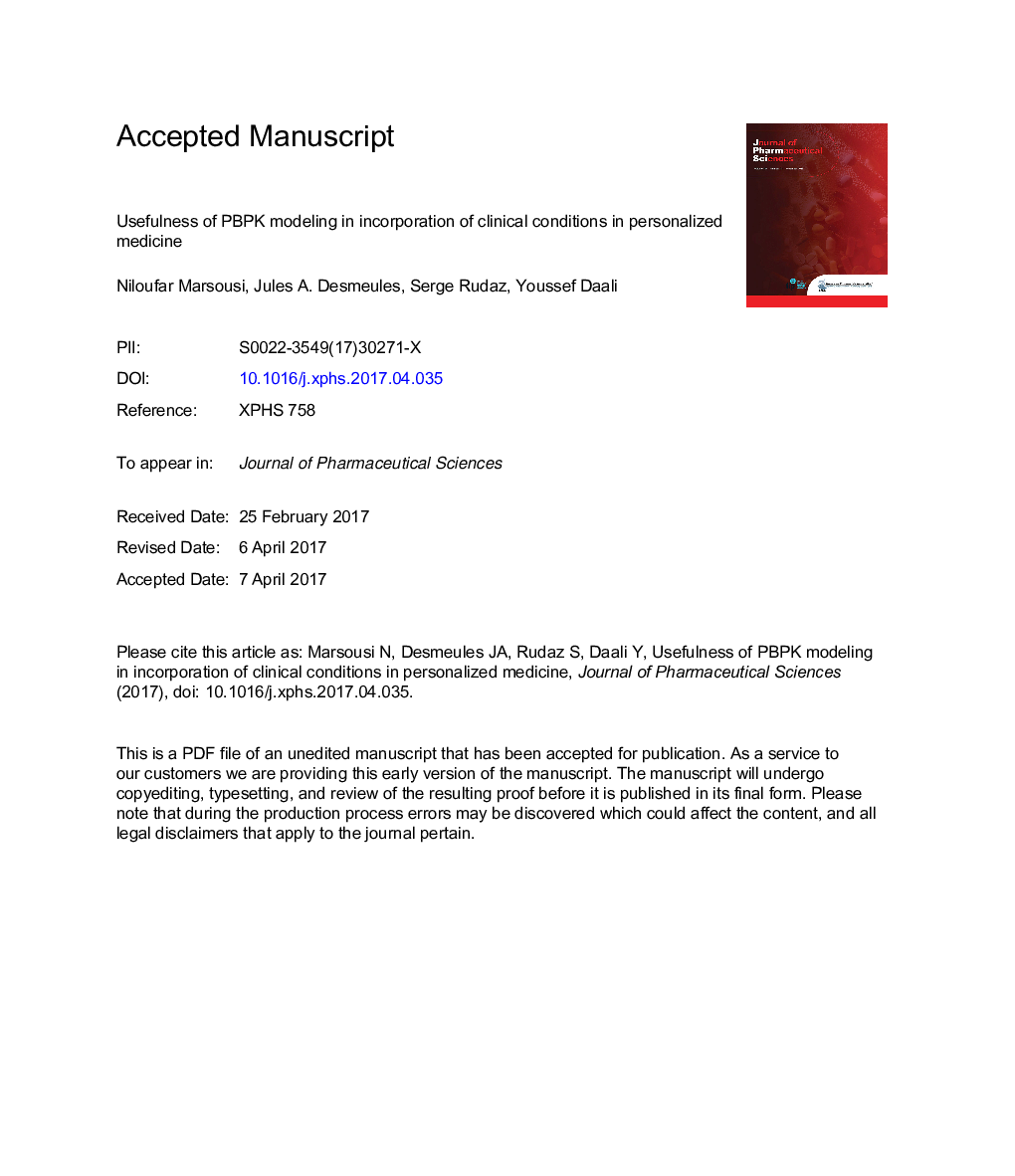| Article ID | Journal | Published Year | Pages | File Type |
|---|---|---|---|---|
| 8513921 | Journal of Pharmaceutical Sciences | 2017 | 50 Pages |
Abstract
Personalized medicine aims to determine the most adequate treatment and dose regimen to obtain the maximum efficacy and minimum side effect by taking into account patients' characteristics. For numerous reasons, one being ethical and methodological hurdles in including specific populations in clinical trials, innovative methods for optimization of drugs safety and efficacy in such patients have received increasing interest recently. Physiological-based pharmacokinetic (PBPK) modeling has emerged as a promising approach in designing adequate clinical trials and quantifying anticipated changes in unknown clinical situations. In this review, current state of knowledge on the usefulness of PBPK modeling in estimation of drug exposure in specific medical conditions including pregnancy, pediatrics, elderly, patients with liver or renal impairment, obesity, and following bariatric surgery were outlined. Modulations of key system parameters occurring in these patient populations were illustrated. Furthermore, the application of PBPK approach in dose recommendations and quantification of drug exposure in carriers of genetic polymorphisms was summarized. Despite the uncertainties and knowledge gaps related to parameters influencing drugs bioavailability in each clinical condition, PBPK models provide a valuable support for prospective dose recommendations and efficacy/safety assessment in special populations when consistent clinical data are lacking.
Related Topics
Health Sciences
Pharmacology, Toxicology and Pharmaceutical Science
Drug Discovery
Authors
Niloufar Marsousi, Jules A. Desmeules, Serge Rudaz, Youssef Daali,
